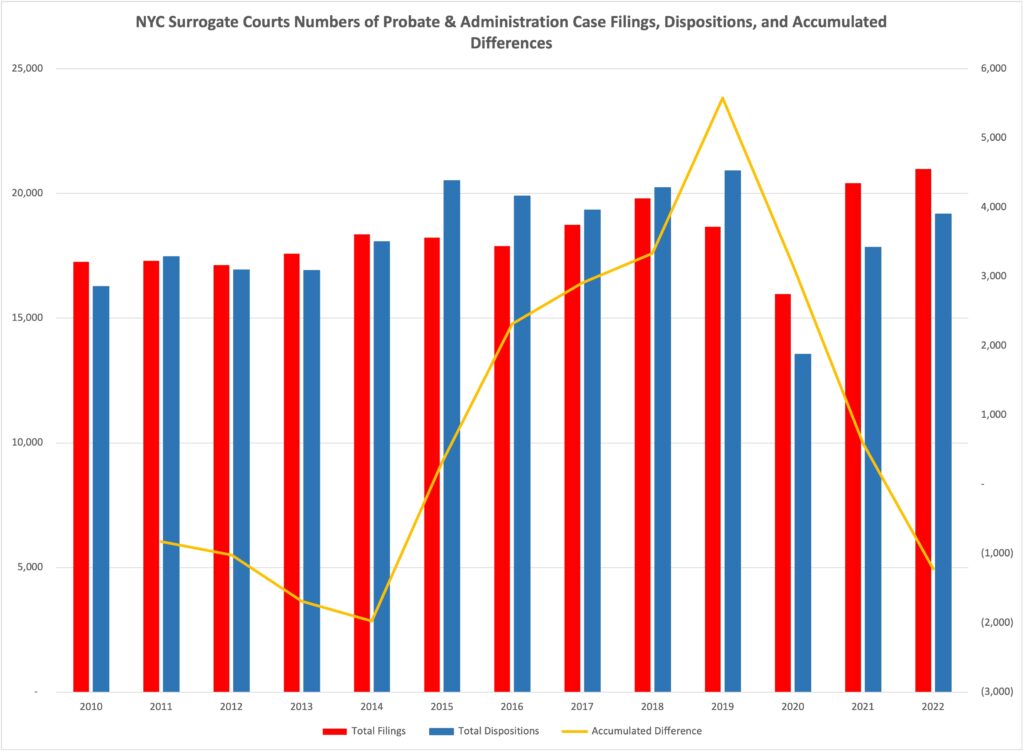NYC Surrogate’s Courts Backlogs
– Poor near-term prognosis
Since the COVID pandemic, many courts in the country have experienced worsening case backlogs. (See, eg, here.) New York Surrogate’s Courts are no exceptions, causing prolonged delays in probate and administration proceedings[1]. In an ongoing administration case of mine, the family of the deceased has been waiting for almost 1 year and the Court still has not decided on the petition. This is causing deepening agonies for the family members, who have just lost their beloved one but have to endure the uncertainties in administering the estate.
The near-term prospect for improving case backlogs in NY’s Surrogate’s Courts, particularly in NYC, does not seem bright at this point. The chart below shows the annual numbers of probate and administration filings, dispositions, and their accumulated differences from 2010 to 2022 in the NYC Surrogate’s Courts[2].

Based on the chart, NYC Surrogate’s Courts did successfully improve the probate and administration backlogs (disposing of more cases than filed) from 2014 thru 2019. The pandemic, however, threw a wrench to the campaign, and the efforts faltered. The case backlogs are now back to the level around 2014. It will likely take many more years to clear the backlogs.
Such a poor near-term prognosis of the case backlogs in NYC Surrogate’s Courts may prompt more people to consider alternative approaches for avoiding probate, such as living will, joint tenancy, designated beneficiary, or even LLC and other corporate entities. Each approach, however, has its own pros and cons that may require further evaluations and planning.
[1] When a person passes leaving a will, the heirs initiate a “probate” proceeding in the Surrogate’s Court to obtain the authority to access and distribute the deceased person’s estate. If the deceased did not leave a will, an “administration” proceeding is used.
[2] Based on the Annual Reports of the Chief Administrator of the NYS Courts, accessible here.